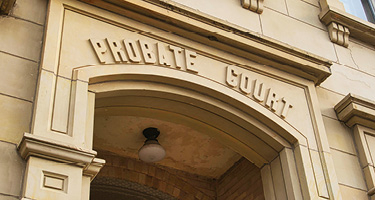Probate Court: A Complete Guide
Probate court is a legal process that takes place after someone dies. It involves a court overseeing the distribution of a deceased person's assets to their heir. The process can be complicated and extremely time-consuming, but it is necessary to ensure that the deceased person's last wishes are carried out and their assets are distributed properly.
In this complete guide, we'll discuss what exactly happens in probate court and provide all the information you need to understand this crucial legal process.
What Is Probate Court?
As previously stated, probate court is a legal process that occurs after someone dies. It involves proving the validity of the deceased person's will, if there is one, and distributing their assets to their heir or heirs. If the deceased person did not have a will, the probate court will determine how their assets should be distributed according to state law. Probate court is also used to handle any disputes that may arise during this process.
What Is Probate Court for a Will?
If the deceased person had a will, probate court is used to prove the validity of the will and ensure that its instructions are carried out. The first step in this process is to file the will with the probate court. The court will then review the will to ensure that it meets all legal requirements and is valid. If the court determines that the will is valid, it will appoint an executor to handle the distribution of the deceased person's assets according to the instructions in the will.
What Is a Citation in Probate Court?
A citation in probate court is a legal document that is used to notify interested parties of a probate proceeding. This document is typically served on the heirs and beneficiaries of the deceased person's estate, as well as any creditors who may have a claim to the estate. The citation will provide information about the date and time of the probate hearing, as well as the location of the court where the hearing will take place.
What Is a Probate Court Order?
A probate court order is a legal document issued by the probate court that directs the executor of the estate to take a specific action. This could include distributing assets to heirs, paying off debts or taking any other action necessary to close the estate. The probate court order is binding and must be followed by the executor.
How to Avoid Probate?
One way to avoid probate is to create a living trust. A living trust is a legal document that allows you to transfer your assets into a trust while you are still alive. When you die, the assets in the trust are distributed to your beneficiaries according to your instructions, without the need for probate court.
Another way to avoid probate is to make sure that your assets are titled in a way that allows them to be transferred outside of probate. For example, assets held in joint tenancy with rights of survivorship will automatically transfer to the surviving joint owner without the need for probate.
What Does Probate Include?
Probate can include a wide range of assets, such as real estate, bank accounts and life insurance policies. It can also include personal property, such as cars, furniture, jewelry or any other personal effects. In addition, probate may involve paying off any debts or taxes owed by the deceased person and distributing any remaining assets to their heirs.
What Are Executor Fees?
Executor fees are the fees paid to the executor of the estate for their services in handling the probate process. These fees are typically based on a percentage of the value of the estate and are subject to state law. In some cases, the executor may also be entitled to receive reimbursement for any expenses incurred in the process of administering the estate.
Why Should You Have an Estate Plan?
Estate planning is the process of creating a plan for how your assets will be distributed after you die. It involves creating a will, establishing trusts and making other important decisions about how your assets will be managed. Having an estate plan is important because it allows you to control how your assets are distributed and can help avoid disputes among your heirs. It can also help minimize the amount of taxes that will need to be paid on your estate.
What Are Estate Taxes?
Estate taxes are taxes that are levied on the value of a deceased person's estate. These taxes are separate from income taxes and are paid on the total value of the estate, including real estate, personal property and financial assets. The amount of estate taxes owed will depend on the value of the estate and the state and federal tax laws in place at the time of the person's death.
What Is Community Property?
Community property is a legal term used to describe property that is owned jointly by a married couple. In community property states, all property acquired during the marriage is considered to be owned equally by both spouses, regardless of who earned the income or made the purchase. This means that if one spouse dies, their share of the community property will automatically transfer to the surviving spouse without the need for probate court.
Conclusion
Probate court is a legal process that can be complicated and time-consuming, but it is necessary to ensure that the deceased person's wishes are carried out and their assets are distributed properly.
A citation in probate court is a legal document that is used to notify interested parties of a probate proceeding, while a probate court order is a legal document issued by the probate court that directs the executor of the estate to take a specific action.
To avoid probate, an individual can create a living trust or make sure that their assets are titled in a way that allows them to be transferred outside of probate. Having an estate plan is important because it allows for control of how assets are distributed and can help avoid disputes among your heirs. An estate lawyer can help ensure that the probate process goes smoothly and that your wishes are carried out properly.
Access top-rated lawyers through the Best Lawyers Find a Lawyer tool to help with your legal matters.





























